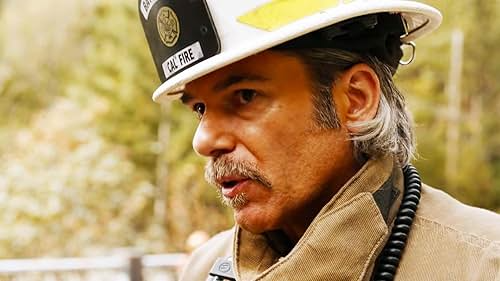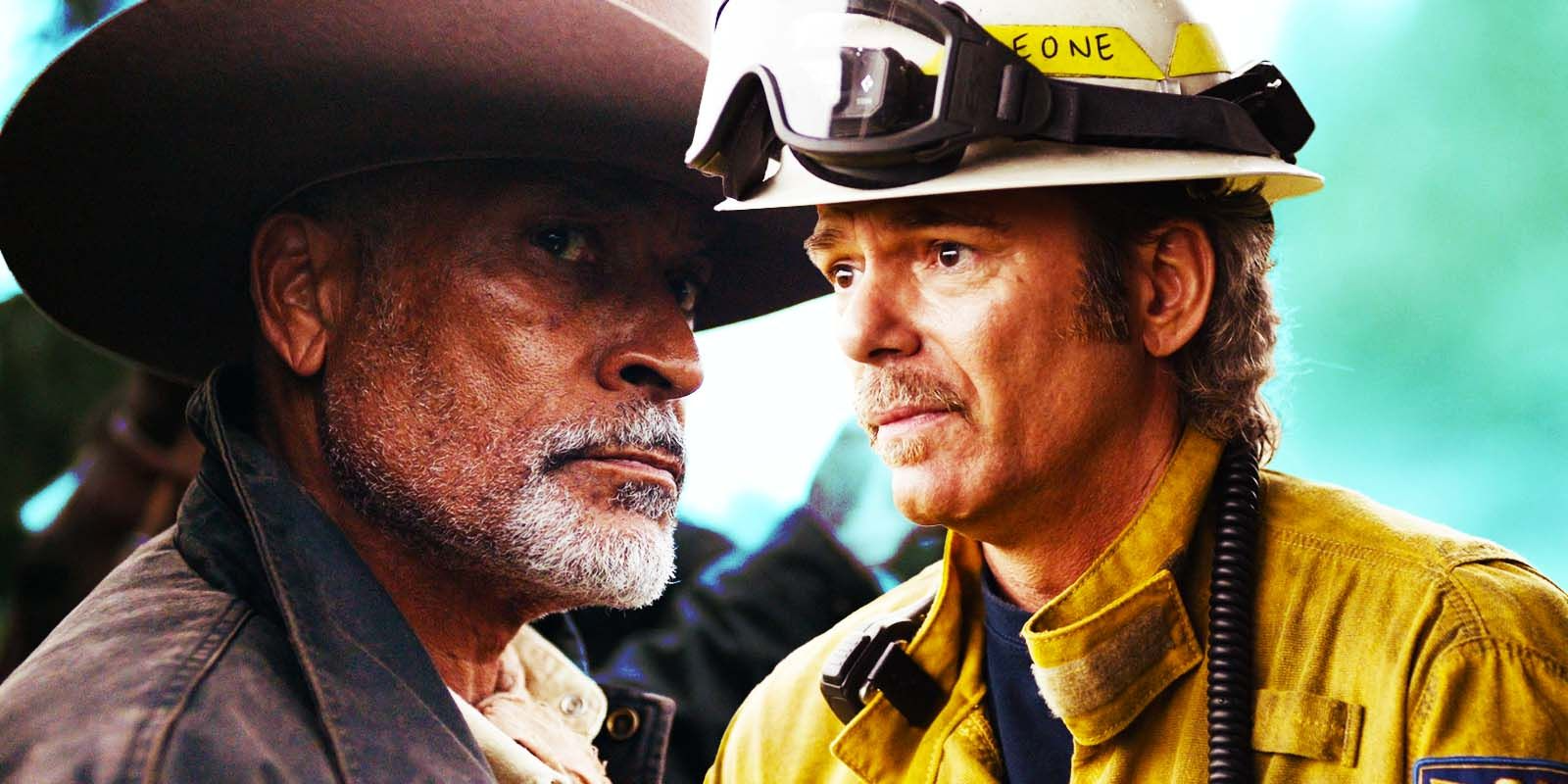
Beyond the Firehouse: Vince Leone as a Civic Anchor
To the outside world, Vince Leone was the battalion chief of Station 42. But in Edgewater, he was something more—a guardian, a mentor, a neighbor, and above all, a symbol of stability. His presence stretched far beyond the firehouse walls. He coached little league teams. He stood at town halls. He showed up to memorials and school fundraisers, often still in uniform, still smelling of smoke and ash, yet never too tired to serve.
So when Vince died in the line of duty, it wasn’t just the fire department that fell into mourning—it was the entire town. Edgewater didn’t just lose a fire chief. It lost its protector.
Season 4 of Fire Country has an opportunity to explore this in ways it hasn’t yet fully dared: what happens to a town when its moral compass is suddenly gone?
A Town in Grief
Grief in Edgewater will not be clean or quiet. Vince had been a constant for decades, which means nearly every adult in town has a story about him:
-
The time he rescued someone’s grandmother from a gas leak.
-
The day he pulled a teenage driver from a submerged vehicle.
-
The summer he talked a teenager out of joining a gang.
Now that he’s gone, those stories don’t disappear—but they take on the ache of memory. And that communal loss becomes part of the town’s identity.
Season 4 could depict:
-
A town memorial with testimonies from citizens
-
An annual remembrance ceremony led by the firehouse
-
Everyday people struggling to make sense of a world where Vince isn’t there to show up anymore
This grief doesn’t just exist to make the story sadder—it exists to show the emotional weight of public service, and how deeply one good man can change the world around him.
Shifting Community Dynamics

Vince’s death will leave a vacuum—not just emotionally, but functionally. He was the one who mediated disputes between the fire department and the mayor’s office, the one who coordinated emergency plans with the hospital and school district, and the one people called first when something felt wrong.
Without him, rivalries may surface:
-
The mayor’s office may push for new leadership at Station 42.
-
The sheriff’s department may overstep into emergency zones.
-
Civilians may grow suspicious, wondering if Cal Fire is still trustworthy.
In the absence of a trusted central figure, chaos doesn’t explode—it simmers. Season 4 can make this simmering tension the backdrop of every episode, reminding us that when leadership dies, trust dies with it—unless someone steps up.
Sharon Leone: The Widow in the Public Eye
No one is more deeply affected than Sharon Leone—not just personally, but publicly. As Vince’s wife and a former Cal Fire division chief herself, she now becomes a symbolic figure for both the town and the department.
Her grief will be complicated. Some townspeople may expect her to return to leadership. Others may quietly blame her for her role in the Three Rock cover-up. Still others may simply not know how to talk to her anymore.
Season 4 could explore:
-
Sharon navigating public grief, forced to smile through ceremonies
-
Unexpected confrontations with townspeople who feel abandoned
-
Private moments of collapse, when she realizes she’s not just mourning Vince—but mourning the woman she used to be when he was alive
Edgewater doesn’t just need Sharon to survive Vince’s death—it demands she represent its strength. That’s a cruel ask, but it’s also heartbreakingly real.
Bode’s Fractured Relationship with the Town
Bode has always lived on the edge of community acceptance. Once the town’s golden boy, he became its cautionary tale. His time in prison and the scandal at Three Rock made him a controversial figure. Vince’s death could deepen that rift.
Some residents may:
-
Blame Bode emotionally, feeling his choices brought turmoil
-
Avoid him, afraid to say the wrong thing
-
Try to connect, only to be pushed away by Bode’s guilt
Bode’s journey in Season 4 could include a public reckoning. Not in a courtroom, but in diners, in hardware stores, in town halls—where forgiveness isn’t declared, it’s slowly earned.
The Firehouse as a Civic Pillar Under Pressure
With Vince gone, Station 42 becomes the de facto emotional centerpiece of Edgewater, whether it’s ready or not.
-
Jake and Eve must not only fight fires but attend council meetings
-
Public perception of the firehouse becomes increasingly important
-
Mistakes that might once have been overlooked are now heavily scrutinized
The question becomes: Can the station become the town’s heart again—or has too much been lost?
The Return of Forgotten Faces
Vince’s death could also draw back figures from earlier seasons or even town history. Perhaps a former firefighter who quit under controversial circumstances returns to pay respects—or challenge Station 42’s new direction.
We might see:
-
A rival station stepping in to “support” but really challenge
-
A family Vince once helped offering unexpected counsel
-
Or even someone from Vince’s past revealing a side of him the town never saw
These returning voices would add emotional complexity and expand the world of Edgewater, making it feel real and lived-in.
Edgewater as a Character Itself
More than a setting, Edgewater must now evolve into a character. Just as Vince’s loss reshapes the firehouse, it reshapes the town’s soul. Season 4 has the opportunity to do something rare on network television: treat community grief as a serialized, emotional arc.
We can witness:
-
School assemblies that pause to honor Vince
-
Strangers at bus stops swapping memories
-
Civic leaders trying to “move forward” while clearly shaken
This is no longer a town protected by Vince.
This is now a town trying to protect his legacy.
Conclusion: The Town That Remembers
Vince Leone may be gone, but his presence remains—in stories, in rituals, in the silent expectations people now place on others to live up to his memory.
In Season 4, Fire Country has the chance to show us what community really means. Not just in ceremony, but in struggle. In disagreement. In remembering.
Because when a town loses someone like Vince, it doesn’t just mourn him—it becomes something different. And if Edgewater can find itself again, maybe that difference won’t be loss—but growth.
